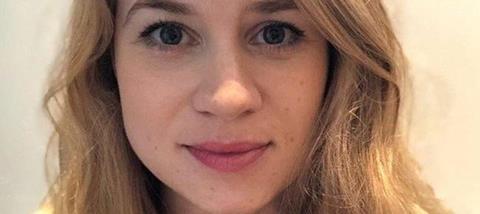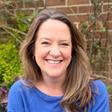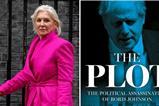1 in 4 churchgoers have experienced abuse within an intimate relationship. And almost all of the women you know have been sexually harassed at some point in their lives, says Bekah Legg

The disappearance of Sarah Everard is a story that connects with our deepest fears; we can’t begin to imagine what she has been through - or the anguish her family must be experiencing. We don’t even know how to pray for them, our words don’t seem enough.
Met Commissioner Dame Cressida Dick has reminded us that actually, this kind of crime is incredibly rare. Most women don’t get abducted walking home from a friend’s home. And she’s right. But most of us would be scared to walk home at night just in case. We wouldn’t want our daughters to do it. And it’s not unreasonable that we feel like that.
In fact, it’s entirely reasonable.
You see, it’s not just about the big stories - the stranger rapes, kidnaps and murders that happen so rarely. It's about the smaller acts of violence that put fear in our hearts that one day it will be more.
UN Women UK conducted a survey that found that 80% of women of all ages, rising to 97% of women aged 16-24, say they have been sexually harassed in a public space.
This isn’t about an isolated tragedy
That means almost all of the women you know have been sexually harassed and most of them have never told anyone or thought it wasn’t ‘serious enough’ to report. Not even when that harassment included groping, being followed or coerced into performing a sexual act.
No wonder women are afraid.
The World Health Organisation released a study showing that one in four women and girls around the world have been physically or sexually assaulted by a husband or male partner. The reality is, you don’t have to leave your home to be at risk.
No wonder women are afraid.
It’s not just a story that happens to other people, it even happens in our churches. Restored conducted research that showed that 1 in 4 churchgoers have experienced abuse within an intimate relationship. Women were more than four times as likely as men to report having been sexually abused.
No wonder women are afraid.
Women are subjected to violence again and again and again and it is almost exclusively at the hands of men.
I don’t say that lightly - I know that saying it offends some men.
Last night, #NotAllMen was trending higher on Twitter than #SarahEverard. I know that not all men abuse women. But at this moment, as women mourn another sister who has been lost to a man, it is not OK to focus on men’s feelings rather than her.
This isn’t about an isolated tragedy, as terrible as it is and as much as we feel for Sarah and her family. We need to recognise, the awful extent of the reality of violence against women and we need to do something about it. We need to acknowledge that there is a real inequality that perpetuates violence against women in all spheres. We must confess where, as the Church, we have been part of the problem, where we have not truly valued and honoured women, and choose instead to speak up and do something, to become part of the solution. To create a different world for our sons and daughters.
This morning I woke to a different trend on Twitter: #TooManyMen and lots of my wonderful male friends asking the question - what can we do to make this better? It’s filled me with the hope that there can be change. Too often the response to stories like the abduction of Sarah Everard is to make women responsible for their safety, saying: "never walk home alone; speak to someone on the phone whilst you walk, don’t drink, don’t wear heels or carry your keys between your fingers." It is great that some men are now asking the question, ‘What can we do to make women feel safer?’
Thank you for asking, thank you for caring. Thank you for valuing women’s safety. Please encourage your friends to do the same.
The truth is, it’s not just about helping individuals to feel safe - there’s a bigger conversation to be had about systems and structures and whole belief systems that mean women continue to feel afraid - but the practicalities of helping women feel safe whilst they’re walking are a good place to start. Plan International Australia has created a campaign called Walk Like a Woman with 7 tips for men’s behaviour in public. Tips that would make women feel safer:
1. Keep your distance
"When walking behind a girl or woman at night, remember that the closer you are, the more threatening you seem. So make sure to leave a good amount of distance between yourself and her."
2. Don’t run up from behind
"Having someone run up behind you at night can give anyone a fright, but for a girl or woman, it can be terrifying. Next time you’re out for an evening jog and see a woman walking ahead… cross the road or make sure to leave a good amount of space while passing."
3. Don’t stare
"If you’re by yourself, being stared at is intimidating and unsettling. Taking out your phone and focusing on something else can go a long way to showing you’re not a threat. Look out the window to focus on something else, or call a friend to have a chat."
4. Keep comments to yourself
"What you might see as just a bit of fun, or even flattering, is actually harassment and can be terrifying to lone women and girls."
5. Keep your mates in line
"You may not harass women, but if you stay quiet while your mates do then you’re part of the problem."
6. Be an active bystander
"If you notice a woman is uncomfortable with someone’s behaviour, show your support by being an active bystander. It can be as simple as standing between a woman and her harasser to block their line of sight. Ask her if she is OK, and back up anyone else who is intervening."
7. Share the walk
"Keep the conversation going by sharing these tips, and helping girls and women feel safer at night."
First man standing
If violence against women is to end, we need men to help challenge the attitudes and behaviours that perpetuate it – in themselves, and in other men.
That's why we, as Restored, launched the First Man Standing campaign. We have over 1500 members to date, committed to standing up and speaking out about violence against women – be it in their families, churches or workplaces. It’s not all men, but we do need more men to stand up and make a difference wherever they are.
Bekah Legg is the director of Restored
To read more about the Church's response to domestic abuse, see our recent cover story The Shadow Pandemic



































